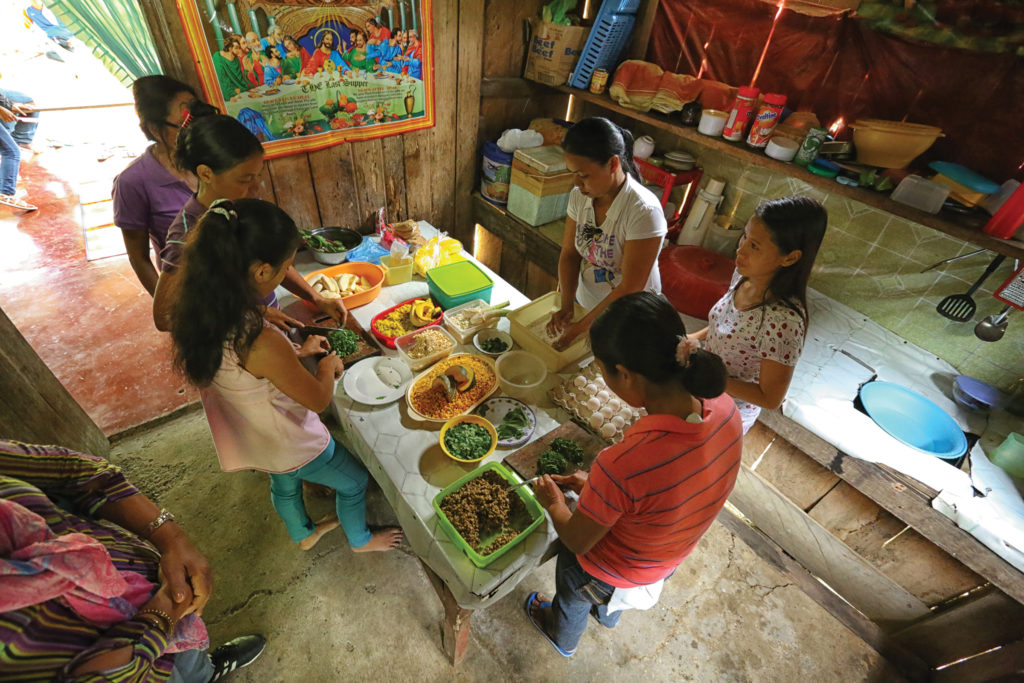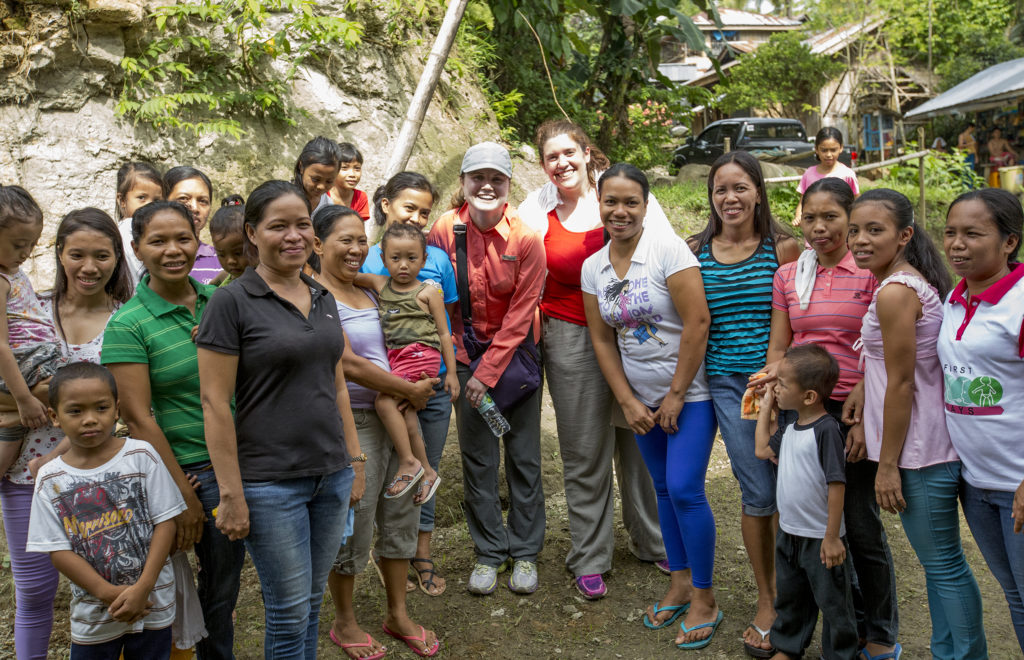Anne Choate is a long-time supporter of Lutheran World Relief who recently traveled to the Philippines to see our projects in action. Here she reflects on the experience as part of our "Humans of LWR" blog series, which seeks to tell stories of the human connections made through the work of Lutheran World Relief.
In my everyday life, I am a member of several communities. My husband and I are both attorneys and are active members in various bar associations. We live in Chicago’s Chinatown neighborhood, where we have great neighbors and many friends. We worship at St. Therese Chinese Catholic Church, which is a wonderful fellowship and source of spiritual inspiration.
All of these communities are very important and meaningful, providing me with a sense of rootedness and belonging. But it was when I was far from home, when my husband and I visited Agusan del Sur in the Philippines, that I had a most profound experience of what it means to be a community.
We traveled to the island archipelago nation to visit projects being carried out by Lutheran World Relief, an international humanitarian organization. We had traveled to places stricken by poverty in the past. But there was something different this time about the people we encountered. Never before had the story of the widow’s mite — the Gospel story in which Jesus raises up the generosity of a poor woman — ever been lived out before me. God was working through these people and showing me that I need to do more.
When we first arrived, Roderick “Derek” Valones, an LWR program manager, taught us a few words in Filipino. One of the first words was “bayanihan” or “community.” I was a bit surprised that this would be one of the first ten words I would be taught, but that surprise was quickly wiped out as I witnessed the importance of community.
We were welcomed to a meeting in a local village. The room quickly became crowded with everyone from the village, except the young men, who were working to install a well so villagers wouldn’t have to walk a kilometer to the mountain for fresh water. Such communal work isn’t unusual. An elder of the village explained, “United we stand. Divided we fall. Their village is now united.” They were working together for the good of the whole village.
 Mothers participating in LWR's FRESH project
Mothers participating in LWR's FRESH project
And then we heard story after story about how neighbor was helping neighbor. One mother explained about how some members in the village were trained in how to improve nutrition among children and were taking aside parents with malnourished children to teach them about how to they could help them thrive. Another woman explained that 90 percent of the community had their own garden, but with a recent drought, not everyone was able to plant. Those who had seedlings shared them with those who had not.
Finally, a family said that they had started with two chickens and those have grown to be 60. Since then, they have distributed their surplus chickens to families in the surrounding area, up to a kilometer away.
Everyone had improved as a result of LWR’s programs, and all share if someone does not have.
Towards the end of the meeting, the sitio – which had been struggling with malnourishment – presented us with a feast (pictured above). Dozens of dishes to share with us. I have been fortunate enough to not know hunger. Yet these people made the point of sharing their food with us. I have never had a meal made with that much love.

When I asked Derek what he would want people at home to know, he quickly responded, “the love for the people.” He explained that the conditions the communities must endure, particularly the insecurity of their food supply and the accompanying hunger, make life difficult. But “God loves me, so I can love also,” he says. He and every person I met share their gifts and talents to bless others. Implicitly, I understood that Filipinos continually share their blessings and he would want others to share their gifts and talents to bless others as well.
Like a footprint in wet cement, LWR’s work here will always leave a mark. Bayanihan means “community” and through our support of LWR, we will always be part of that community.


